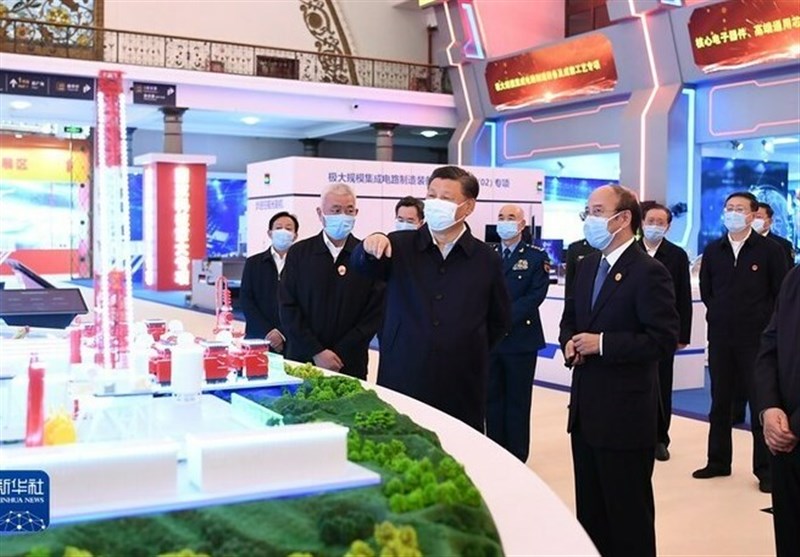Speaking in an interview with the website of the Strategic Council on Foreign Relations, Seyed Reza Mirtaher, while referring to the signing of the embargo law on the purchase and use of telecommunications equipment by Huawei Company of China due to security threats, reminded that further weakening of China is one of the most important US programs, noting: The law, previously unanimously passed in the Congress, entered into force with the president’s signature, and given the dramatic advances in cyberspace, artificial intelligence, and the Internet, the United States is working to put maximum barriers on the way of China in those areas.
Maximum US pressure on China’s technology
Saying that in the last year of his presidency, Trump did his utmost efforts to put maximum pressure on China’s technology sector, adding: According to some estimates, Huawei is the largest telecommunications company in the world and the United States is working against this company and other large Chinese companies to impose various restrictions and sanctions to prevent development of telecommunications, Internet and artificial intelligence-based technological activities, and prevent it from gaining access to major global markets, even in the Western bloc.
The analyst of international affairs pointed to the cancellation of Huawei’s agreements with Germany, France, Britain and several European companies to launch the fifth generation of the Internet due to US pressure during the Trump era, and continued: By no means does the United States want China to succeed, either in terms of technological advancement and R&D in it, or in terms of trade and its economic and trade consequences.
Mirtaher said: The United States says the use of Chinese equipment, especially in the US federal agencies and security organizations, greatly increases the likelihood of Chinese espionage and infiltration. The United States also boycotted five major Chinese companies in the field of supercomputers in 2019, indicating that given the crucial role that supercomputers can play in military, nuclear, and other related developments, the United States seeks to prevent China from gaining access to supercomputers and related technology.
He noted that the United States considers China to be its biggest geostrategic enemy, adding that Washington is seeking to prevent Beijing from acquiring technologies that are at the forefront of scientific advances, including cyberspace, computers, artificial intelligence, networking capabilities, and network warfare.
Negative impact of restrictions on markets selling Chinese products
The expert on international affairs, referring to some analysis that consider China’s progress as uncontrollable with regard to its precedence over the United States in a number of areas, noted: The United States uses the tool of sanctions and restrictions, and as such we are witnessing that all the American technology and computer companies, including Google, have been required not to cooperate with Chinese partners, especially Huawei, and now the mobile phone that the company produces no longer has the Android operating system. Such restrictions have a significant impact on the global market for those phones.
Saying that with these restrictions, China will be deprived of gaining access to advanced US technology, as well as its vast and important market and possibly its partners, Mirtaher added: The United States is still the world’s largest economy, and given domination of dollar over international markets and its pressure on other countries, it can be predicted that they will do their best to prevent, as much as they can, large Chinese companies from operating in other countries, especially those who have close relations with China.
He stressed: Basically, the overall goal of the United States in such measures is to prevent as much as possible the increase of China’s national power, one of the aspects of which is economic power, and consequently industrial and technological power. Therefore, such issues are expected to have a negative impact on the workflow of large Chinese companies.
Disruption of supply chain and undermining scientific, technical development
The international affairs expert said that the United States is trying to weaken China’s ability for scientific, technological and economic development while cutting the supply chain of Chinese companies, adding: In the field of research and development, the United States seeks to restrict access of Chinese experts and scientists even inside the United States to American resources and universities, and limit any plan that allows China to make some use of American technologies and technological capabilities. This will increase the pressure on those people. Therefore, the US measures against China in this area are multifaceted and pervasive.
Mirtaher cited US restrictive measures against China as a factor in inflicting huge financial losses on American companies, adding: In 2019, senior officials of the Chinese Huawei Company announced that the Trump administration’s decision to blacklist the company had caused direct damage to more than a thousand American companies, while tens of thousands of jobs in the country were affected by Huawei sanctions. It also inflicted heavy losses on those American companies that used Huawei products and services in 170 countries.
At the same time, he said, the Chinese are basically smart people, and with the acquisition of basic technology, are rapidly developing it. Therefore, it is predicted that China will take big steps in those areas in the coming years, given that it has now acquired the necessary human, industrial, technological and scientific foundation.










0 Comments